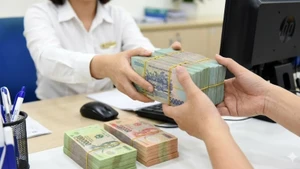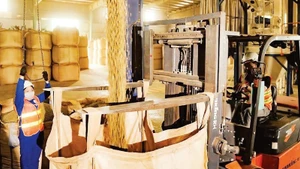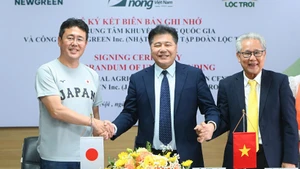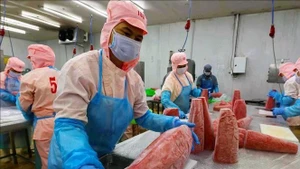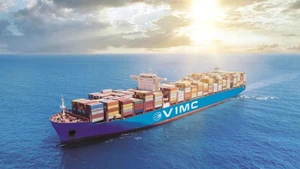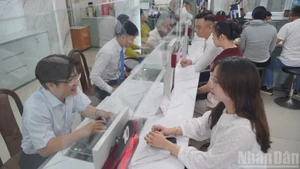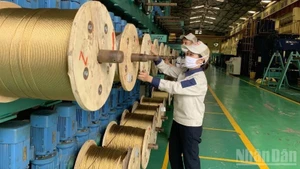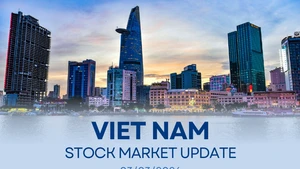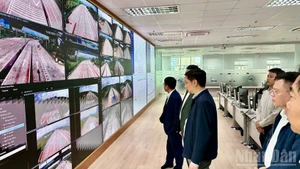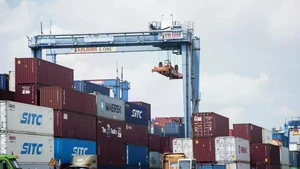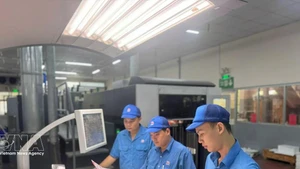The meeting, co-chaired by Viet Nam’s Deputy Minister of Industry and Trade Nguyen Sinh Nhat Tan and Parliamentary State Secretary at the German Ministry for Economic Affairs and Energy Stefan Rouenhoff, aimed to review cooperation, remove obstacles and identify priority areas for future endeavours.
Tan said Viet Nam is pleased to see the countries’ multifaceted ties deepen rapidly, underpinned by strong political relations, close coordination between ministries and growing links between the two business communities.
Both sides reaffirmed that energy cooperation remains a central pillar. They welcomed the upgrade of their cooperation framework to the Viet Nam–Germany Energy Partnership, which is expected to support energy transition, emissions reduction towards net-zero targets, energy-security enhancement and expanded business-to-business cooperation.
The two officials agreed to implement the 2025–26 action plan, maintain the annual high-level steering committee, establish a technical working group and strengthen training, research and enterprise networking. Viet Nam highlighted Germany’s role in projects under the Just Energy Transition Partnership (JETP) and called for closer cooperation to advance the prospective sustainable development goals.
Viet Nam and Germany are committed to expanding collaboration in automotive production and attracting investment in supporting industries, including textiles, footwear, electronics and high-tech components. Viet Nam urged German chemical manufacturers to explore opportunities in priority subsectors listed under the 2025 Law on Chemicals and work together on green-chemistry applications.
Both sides agreed to boost technology transfer, innovation and digital transformation in industry, and enhance workforce training, particularly in green skills, digital capabilities and Industry 4.0 management.
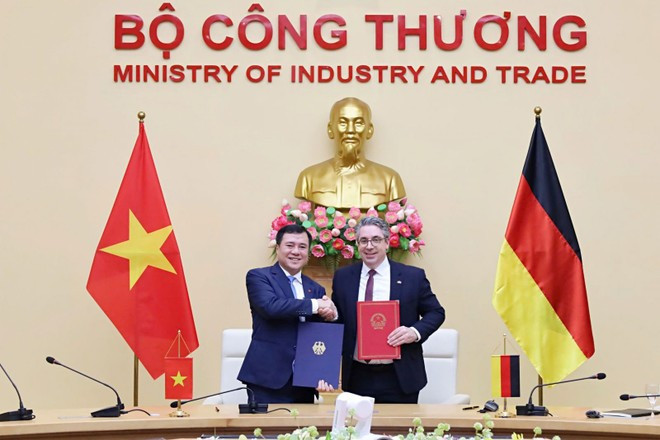
Regarding trade, the two countries pledged to improve information sharing, maintain stable trade flows, ensure supply-chain continuity and maximise the benefits of the EU–Viet Nam Free Trade Agreement (EVFTA). Viet Nam asked Germany to help businesses comply with EU regulations and encouraged German firms to invest in the processing of agricultural and aquatic products, as well as in logistics, cold storage and transhipment hubs for exports to Europe.
The meeting took place in a constructive and cooperative atmosphere. The two chairs agreed to maintain regular sessions to support ministries and businesses in implementing agreed outcomes. Tan and Rouenhoff signed the minutes of the committee’s third meeting.
Germany is Viet Nam’s second-largest trading partner in Europe, accounting for more than 17% of Viet Nam’s exports to the EU, according to the 2024 customs data.
Bilateral trade reached more than 11.1 billion USD in the first ten months of 2025, up 15.1% year on year. Viet Nam’s exports to Germany rose 19% to nearly 7.8 billion USD, while imports grew 7.2% to almost 3.2 billion USD.
Approximately 300 German companies operate in Viet Nam, including major industrial groups such as Siemens, B. Braun, Bayer, Mercedes-Benz, Bosch and ZF.
As of October 31, Germany had 509 active investment projects in Viet Nam with total registered capital of 3.009 billion USD, ranking 17th among 153 countries and territories investing in the country, according to statistics from the Ministry of Finance.

